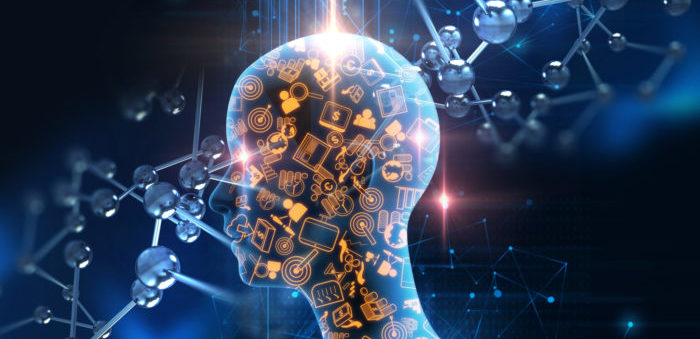During the 2020 SMART4SEA Athens Forum, Mr. Mike Konstantinidis, CEO, METIS Cyberspace Technology, addressed in brief the necessity for the digital transformation in the maritime, as well as the contribution of smart technologies such as Artificial Intelligence and Machine Learning in the development of a new era in shipping.
Shipping is an industry that never settles. There is an ongoing need to adapt in order to survive since major parameters are changing all the time. The ones who manage to adapt promptly are the ones who have the competitive advantage. In the years to come the need to adapt will be even more imperative.
Actually, the biggest challenge that shipping has to face comes from the need to adapt to the digital era. The digital or smart shipping is already here and will change literally the model of how this business is being run. Smart shipping, is not something that we discuss for the future; it is something that is happening now.
Technologies such as the IoT generate huge volumes of data (Big data) that are collected from the vessels and of course there are multiple other external sources that can create an even more enriched dataset (weather data, AIS, ERP, PMS, etc.). The only way to manage effectively these data and to convert raw signals and scattered information into valuable & actionable knowledge is to utilize the power of Artificial Intelligence and Machine Learning.
Few words about our company, METIS has been founded a little more than 3 years ago by a team of skillful engineers with considerable expertise in mechanical & naval engineering as well as extensive business know-how in shipping. We have grown since then and currently we have more than 40 engineers managing to make a significant impact in the Global Maritime Industry.
Peter Drucker, the guru of marketing, has said that it is impossible to manage something if you don’t measure it. So, the concept of our company is to provide a robust infrastructure to collect data from the vessels in order to develop a stable dataset on which to perform reliable analysis.
So what we actually do, is that we assess the past performance of a vessel; we monitor its present operation, and most importantly, we are able to predict how the vessel will behave in the near future.
The user interface is of crucial importance for us. That’s why we have developed the first, worldwide, chat-bot specifically designed for shipping. So, you communicate with METIS in simple English, in natural language, like you communicate with your colleagues; you ask questions, you get answers, METIS sends automated alerts on critical events, or predefined scheduled reports. This is the way we implement the concept of a virtual, personal assistant, a virtual employee who is always available to support the executives of a shipping company.
Additionally, we have an intelligent way, to implement what we call data driven decision-making through the generation of business scenarios. Based on the current condition of the vessel and changing parameters such as speed, ETA, draft, destination port etc, METIS can help shipping companies run multiple scenarios in order to make justified decisions. Recently we had a case of a real vessel were through the scenario generation we surprisingly found out that for a specific trip from Malaga to Rotterdam, sailing in higher speed resulted in less F.O. consumption due to the fact that it helped the vessel to skip bad weather conditions in the North Sea.
So, this is an example of how technology can change the current business model and how the companies that embrace technology can be more competitive than the rest.
Another topic that is very popular nowadays is the behavior of new machinery such as the scrubbers or the ballast water treatment systems; equipment imposed through regulations and on which there is not enough experience. There is a significant uncertainty on how this equipment will behave in the real world, and what will be the effect on the operation of other equipment such as the M/E or the DGs. METIS connects and monitors machinery like the BWT and the Scrubbers, providing a reliable, real time view to the technical department ashore in order to ensure proper operation as well as to document the regulatory compliance.
Moreover, using the METIS platform, our customers monitor Main Engines and Diesel Generators in order to predict failure, prevent unfortunate vessel downtime as well as to optimize F.O. consumption.
The hull and propeller fouling is another very critical subject for shipping; a typical question is “when should we clean our hull or paint it?”. Our system based on transparent algorithms and complex calculation models measures with accuracy the magnitude and the trend of energy losses due to hull & propeller fouling decoupling the loss form other external factors, like that of the wind, the waves, the drift, etc.
Closing this presentation, the value that our customers get from METIS can be placed in the following areas: 1. Cost reduction – which is obviously very important for shipping companies, 2. Operational efficiency – which is something that enables them to be some steps ahead of the competition; 3. Regulatory compliance – offering peace of mind, and finally 4. Environmental footprint management – contributing to the sustainability and the environmental protection.
Digital shipping is happening now, and believe it or not, it is not possible to avoid it, you can’t stop the digital transformation, you can’t stop this digital wave, instead however, you can learn how to ride it. The ones who will promptly learn how to ride it, will be the ones to be at the first places on this race.
Above text is an edited version of Mr. Mike Konstantinidis’ presentation during the 2020 SMART4SEA Form.
View his presentation herebelow
The views expressed in this article are solely those of the author and do not necessarily represent those of SAFETY4SEA and are for information sharing and discussion purposes only.































































